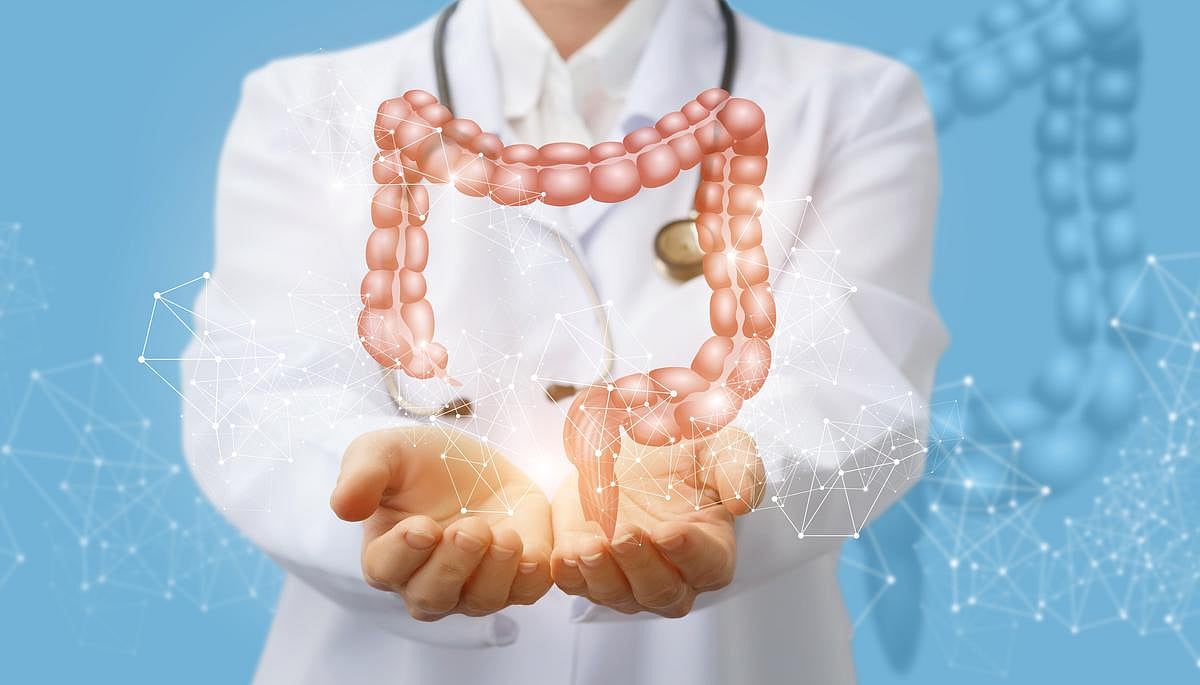Manténgase sano!

- Dennis Thompson
- Posted April 28, 2025
Bacterial Toxin Implicated In Young Adult Colon Cancers
Colon cancer cases have been increasing among younger adults, and now researchers think they’ve identified a potential culprit.
A bacterial toxin called colibactin, produced by certain strains of E. coli, appears to alter gut DNA in a way that prompts colon cancer, researchers report in the journal Nature.
Colibactin leaves behind specific patterns of DNA mutations that are more than three times as common in early-onset colon cancers, specifically in adults younger than 40 compared to those 70 or older, results show.
Researchers suspect colibactin-producing bacteria may be silently colonizing children's colons, setting the stage for cancer in midlife and beyond.
“These mutation patterns are a kind of historical record in the genome, and they point to early-life exposure to colibactin as a driving force behind early-onset disease,” senior researcher Ludmil Alexandrov said in a news release. He is a professor of bioengineering and cellular and molecular medicine at the University of California-San Diego.
Colon cancers have been steadily increasing among people under 50, so much so that guidelines have been updated to lower the age of screening to 45.
Colon cancer rates increased by 2.4% a year among people younger than 50 between 2012 and 2021, according to the American Cancer Society. Likewise, death rates in people under 55 have been increasing about 1% a year since the mid-2000s.
At the same time, colon cancers have been declining among older adults, thanks to screening methods like colonoscopy, the ACS says.
For the new study, researchers analyzed 981 colon cancer samples collected from patients in 11 countries.
The analysis revealed that colibactin is a common toxin among these cases, particularly in early-onset colon cancers.
The results show that colibactin’s damaging effects begin early in tumor development, and account for about 15% of the earliest genetic alterations that directly promote cancer development.
“If someone acquires one of these driver mutations by the time they’re 10 years old,” Alexandrov explained, “they could be decades ahead of schedule for developing colorectal cancer, getting it at age 40 instead of 60.”
More research now is needed to figure out how children are being exposed to colibactin-producing bacteria, and what can be done about it, researchers said.
The team also is working on an early detection test that could analyze stool samples for colobactin-related mutations.
“This reshapes how we think about cancer,” Alexandrov said. “It might not be just about what happens in adulthood -- cancer could potentially be influenced by events in early life, perhaps even the first few years. Sustained investment in this type of research will be critical in the global effort to prevent and treat cancer before it’s too late.”
More information
The American Cancer Society has more on colon cancer rates.
SOURCE: University of California-San Diego, news release, April 23, 2025





